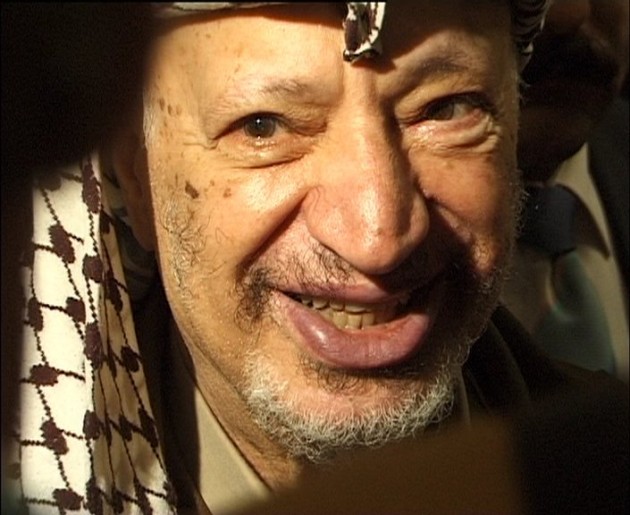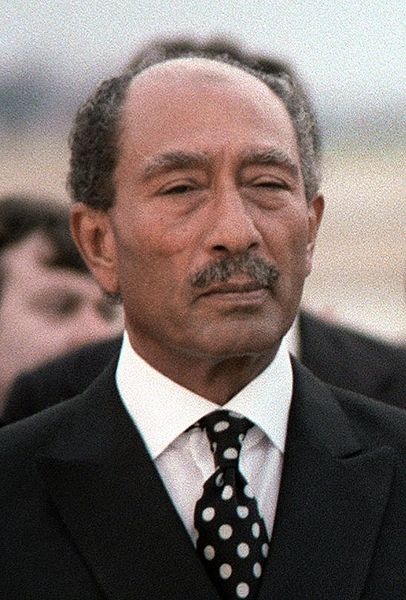The sweeping Israeli victory in the Six-Day War of 1967 had forced every Arab state to rethink its own foreign policy and the extent of its commitment to the cause of Arab unity. Egypt, having lost the Sinai, faced Israelis entrenched in the Bar-Lev line directly across the Suez Canal. Jordan, having lost the West Bank, faced Israeli troops directly across the Jordan River. Syria, having lost the Golan Heights, faced Israeli forces within easy striking distance of Damascus itself. The notion of united Arab armies sweeping the Jews into the sea had clearly proved to be romantic, while political unity among the Arabs suffered from the abiding division between nationalist and socialist states like Egypt, Syria, and Iraq and traditional Arab monarchies like Saudi Arabia and Jordan.
The Palestine Liberation Organization (PLO), organized in 1964 to represent some 2,000,000 refugees from the Palestine mandate who were scattered around the Arab world and from 1968 led by Yāsir ʿArafāt, was also divided between old families of notables, whose authority dated back to Ottoman times, and young middle-class or fedayeen factions anxious to exert pressure on Israel and the West through terrorism. The latter included the Popular Front for the Liberation of Palestine (PFLP), formed three months after the 1967 war. Over the next year the PFLP hijacked 14 foreign airliners, culminating in its spectacular destruction of four planes at once in Jordan. In 1970–71 the moderate King Hussein of Jordan lost patience with the autonomous PLO formations in his territory and expelled them, provoking a sharp military exchange with Syria. The PLO moved its central offices to Lebanon, whence terrorists could cross the frontier to commit atrocities against civilians inside Israel. The PFLP and other Palestinian groups also linked up with extreme leftist and rightist (because anti-Semitic) conspiracies in Italy, Austria, and Germany to form a terrorist network that left no European or Mediterranean state free from the fear of random violence. In September 1972 terrorists from an organization calling itself Black September took nine Israeli athletes hostage at the Munich Olympic Games; all the hostages and five terrorists died in the ensuing gun battle with police.
The terrorist network benefited mightily from the financial support, training, or refuge provided by established pro-Soviet states like Cuba, East Germany, Bulgaria, Algeria, Syria, Yemen (Aden), and especially Libya. In 1969 the Libyan monarchy was overthrown in a military coup led by Colonel Muammar al-Qaddafi, a fanatical adherent of Nasser’s pan-Arabism. Following Nasser’s death in 1970 and the development of rich oil deposits in Libya, Qaddafi styled himself as the new leader and financier of the radical Arab cause. In imitation of Mao, he issued a little Green Book describing his “new gospel…. One of its words can destroy the world.” The ideology was a mixture of Third World-ism, Socialism, and Muslim fundamentalism, and it called forth a “heroic politics.” In the eyes of the West, the rhetoric masked a crazed cruelty, and even in Arab eyes it seemed at best antiquated in the wake of the 1967 war.
Another new feature of Middle Eastern politics was the assertiveness of the Organization of Petroleum Exporting Countries (OPEC), composed of oil-producing countries in the Persian Gulf and Arabian Peninsula as well as Libya, Nigeria, and Venezuela. The members of this producers’ cartel accounted for a large percentage of the world’s oil reserves and wielded tremendous potential power over the Europeans and Japanese, who relied on imports for more than 80 percent of their energy needs. In the past, oil prices had been kept artificially low by the Western oil companies through bilateral agreements with producer states. By 1970, however, most host governments had taken over ownership of the production facilities, and they saw in a drastic rise of oil prices a means of accumulating capital for development and purchases of arms, as well as a way to pressure the Western states into respecting their grievances against Israel.
The most populous frontline (i.e., bordering Israel) Arab state, but one without oil revenues, was Egypt. Since 1955 Egypt had undergone a demographic explosion. Population was growing at a rate of 1,000,000 per year, and 35,000,000 people were crowded into the Nile valley and delta. The numbers and youth of the Egyptians (over half were under 25 in 1980) and the country’s economic weakness meant that frustrated and unemployed youth posed the constant threat of political instability. Certainly Egypt could no longer afford an endless crusade against Israel. These considerations dominated the thinking of Nasser’s successor as president, Anwar el-Sādāt. He could not, however, abandon Nasser’s legacy, especially with the Sinai under Israeli occupation, without losing his legitimacy at home. Accordingly, Sādāt laid a risky and courageous plan to extricate his country from its foreign and domestic stalemates. Husbanding the arms provided by the U.S.S.R. after 1967, he abruptly expelled 20,000 Soviet advisers in July 1972 and opened a secret channel to Washington, hinting that Egypt and the United States together could eliminate Soviet involvement in the Middle East. Only the Americans, he reasoned, might influence the Israelis to return the occupied regions. Then, on October 6, 1973, during the Jewish holiday of Yom Kippur, he launched the fourth Arab–Israeli war.
The Egyptian army moved across the Suez Canal in force and engaged the Bar-Lev line. For the first time it made substantial progress and inflicted a level of casualties especially damaging for the outnumbered Israelis. Syrian forces also stormed the Golan Heights. The United States and the Soviet Union reacted with subtle attempts to fine-tune the outcome by alternately withholding or providing arms to the belligerents and by urging or discouraging a UN cease-fire. Nixon denied Israel an airlift of arms until October 13, preventing Israel from launching a prompt counterattack and thereby signaling Sādāt of American sympathy. Once assured of U.S. aid, however, the Israelis struck on both fronts, regained the Golan Heights, and crossed the Suez Canal. Kissinger, alarmed that the Israeli victory might be so complete as to hinder a lasting settlement, quickly agreed to call, with the Soviet Union, for a UN cease-fire. The cease-fire broke down at once, and Israeli forces encircled a 20,000-man Egyptian army corps. Brezhnev curtly warned Nixon of possible Soviet military intervention, which the United States moved to deter, perhaps recklessly, with a worldwide alert of its military forces. Finally, Kissinger threatened a cutoff of arms deliveries unless Israel halted its offensive, and peace was restored.
The 1973 war saved Egyptian honour and solidified Sādāt’s prestige to the point where he could afford to be conciliatory. The United States emerged as the “honest broker” between Egypt and Israel. As Kissinger put it, “The Arabs can get guns from the Russians, but they can get their territory back only from us.” Kissinger’s “shuttle diplomacy” between Tel Aviv and Cairo secured an Israeli withdrawal beyond the Suez in January 1974, the reopening of the canal, the insertion of a UN force between the antagonists, and, in September 1975, an Israeli retreat from the crucial Mitla and Gidi passes in the Sinai. The United States flooded both countries with economic and military aid, and Sādāt repudiated Nasser’s Socialism in favour of policies stimulating domestic private enterprise.
The limited rapprochement that emerged from the 1973 war was purchased at great economic cost, for the Arab OPEC nations, led by Saudi Arabia, seized the opportunity to enact a five-month embargo of oil exports to all nations aiding Israel. More telling still was the price revolution that preceded and followed. OPEC had already engineered a doubling of the posted price of oil to $3.07 per barrel by the eve of the war. In January 1974 it nearly quadrupled the price again, to $11.56 per barrel. The importance of this sudden rise cannot be exaggerated. The resulting shortages and exorbitant costs accelerated the growing inflation in the Western world, exposed the energy-dependency of the industrial nations, created a vast balance-of-payments deficit in many industrial states, wiped out the hard-won economic progress of many developing nations, and placed massive sums of petrodollars in the hands of a few underpopulated Middle Eastern states. The political upshot was that the United States and Europe would have to pay close attention to the desires of those Arab states in foreign policy as long as OPEC unity survived.
In November 1977, Sādāt shocked the Arab world by announcing his willingness to go to Jerusalem personally to seek peace. When his talks with the new Israeli prime minister, Menachem Begin, broke down, President Carter invited them both to Camp David in September 1978. During 11 days of intensive discussion, Carter succeeded in bringing the rivals together. The Camp David Accords provided for complete Israeli evacuation of the Sinai, gradual progress toward self-rule for West Bank Palestinians over a five-year period, and a peace treaty signed by Begin and Sādāt at the White House in March 1979. This historic settlement dismayed other Arab states and split the PLO asunder, the so-called rejectionists refusing to recognize the settlement. Qaddafi purchased huge amounts of Soviet arms and expanded Libya’s training and supply of terrorists. In December 1979, 300 Muslim fundamentalists seized the holiest of all Islāmic shrines in Mecca. Sādāt himself was assassinated by Arab extremists in 1981.
Стремительная победа Израиля в очередной арабо-израильской войны 1967 г. (шестидневной войны) заставила каждое арабское государство переосмыслить свою внешнюю политику и уровень своих обязательств в Лиге Ароабских Государств (ЛАГ). Египет, потерявший Синай, оказался перед лицом израильских войск на линии Бар-Лев, пересекающей Суэцкий канал. Иордания, потерявшая Западный берег р. Иордан, оказалась перед прямой угрозой вторжения израильских войск. Сирия,потерявшая Голанские высоты, столкнулась с вооруженными силами Израиля недалеко от Дамаска.
Арабский Союз оказался расколот иа националистические и просоциалистические государства (Египет, Сирия, Ирак) и традиционные монархии (Саудовская Аравия и Иордания).
|
В 1972 г. террористическая организация "Чёрный Сентябрь" захватила 9 израильских спортсменов в качестве заложников в Мюнхене, на Олимпийских играх. Все 9 заложников и 5 террористов были убиты в ходе столкновения с полицией.
Террористы получали мощную финансовую поддержку, инструкторов из просоветски настроенных государств, таких как Куба, ГДР, Болгария, Алжир, Сирия, Северный Йемен и особенно из Ливии.
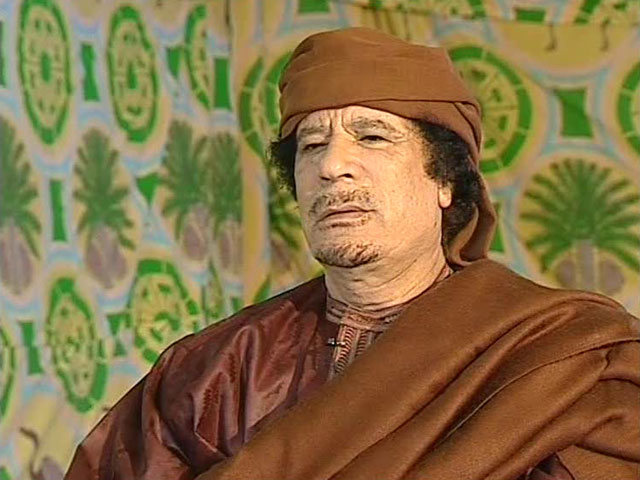 Муаммар Каддафи Муаммар Каддафи
|
В 1969 г. ливийская монархия была свергнута военной группировкой во главе с капитаном Муаммаром Каддафи, фанатично преданного идеям нассеровского панарабизма. После смерти Нассера в 1970 г. и открытия мощных запасов нефти в Ливии, Каддафи провозгласил себя лидером радикалов арабского мира. Имитируя Мао, он выпустил цитатник "Зелёная книга". В Предисловии к этой книге Каддафи писал: «Одни мои фразы смогут разрушить мир». Идеология Каддафи была эклектична, исповедовала, по словам западных авторов, "Third Worldism" - философию вождей Третьего мира, вобравшая в себя идеи социализма, исламского фундаментализма и политического терроризма.
|
Другой важный фактором, оказывавшим влияние на международные события на Ближнем Востоке в 1970-е гг. стала ОПЕК - The Organization of the Petroleum Exporting Countries; сокр.(OPEC) - организации, которая объединила нефтеэкспортирующие государства в районе Персидского залива, Аравийского полуострова и стран Латинской Америки.
ОПЕК как постоянно действующая организация была создана на конференции в Багдаде 10—14 сентября 1960. Первоначально в состав организации входили Иран, Ирак, Кувейт, Саудовская Аравия и Венесуэла (инициатор создания).
К этим пяти странам, основавшим организацию, позднее присоединились ещё девять: Катар (1961), Индонезия (1962—2008, 1 ноября 2008 г. вышла из состава ОПЕК), Ливия (1962), Объединённые Арабские Эмираты (1967), Алжир (1969), Нигерия (1971), Эквадор (1973—1992, 2007), Габон (1975—1994), Ангола (2007).
Страны - государства ОПЕК производили большой процент мирового производства нефти; европейцы и японцы зависели от них, импортируя 80% нефти из этого региона. В прошлом цены на нефть в этом регионе искусственно занижались по сравнению с ценами на нефть, добытую западными нефтяными компаниями через двухсторонние соглашения. К 1970 г., осуществляя широкие закупки оружия для борьбы с Израилем, страны ОПЕК стали завышать цены на нефть.
Египет не обладал как другие арабские государства большими запасами нефти. С 1955 г. страна переживала демографический взрыв. Население выросло до 35 млн. Безработица среди молодёжи в экономически слабой стране обусловила политическую нестабильность в ней. Египет не мог достойно противостоять Израилю.
|
Это понимал преемник Нассера на посту президента Египта - Анвар Садат. В то же время Садат не мог признать потерю Синая, ибо это подорвало бы его авторитет среди египтян. Надежды вернуть Синай Садат связывал с Америкой, но сближению американо-египетских отношений мешали поставки советского оружия в Египет, которые осуществлялись до и после "шестидневной войны" 1967 г, В июле 1972 г. Садат выслал 20 тыс. военных советников СССР и завязал секретные переговоры с Вашингтоном. Он рассчитывал, что только американцы смогут повлиять на Израиль, заставить его покинуть оккупированные территории. В такой обстановке началась 4-ая арабо-израильская война (война "Судного дня",6-24 октября 1973 г.).
|
Поискать «Президент Египта Анвар Садат» в других поисковых системах: Google Mail.ru Bing
Самые громкие преступления XX века Серия 15. Убийство Анвара Садата...
Все видеоролики
|
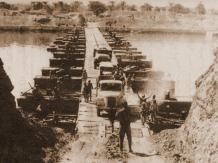 Египетская армия двинулась в район Суэцкого канала к "линии Бар-Лева". Сирийская армия вторглась в район Голанских высот. США и СССР первоначало действовали осторожно, отказывая воюющим сторонам в поставках оружия и призывая выполнить резолюцию ООН о прекращении огня. До 13 октября Никсон отказывал Израилю в поставках военных самолетов. Но как только Израиль получил из Вашингтона обещание помощи, израильская армия стазу же начала наступление на обоих фронтах: и в районе Голанских высот и в районе Суэцкий канал, перейдя "линию Бар-Лева". Помощник американского президента Г. Киссинджер, озабоченный тем, что израильское наступление будет столь успешным, что помешает заключению компромиссного мира, стал поддерживать требование Советского Союза к Израилю соблюдать резолюцию ООН о прекращении огня. Тем временем израильские войска окружили 20-тысячную египетскую армию. Л.И. Брежнев в этой связи предупредил Ричарда Никсона о возможной советской военной интервенции. В такой обстановке Г.Киссенджер на переговорах с Израйлем потребовал прекратить наступление и начать мирные переговоры.
Египетская армия двинулась в район Суэцкого канала к "линии Бар-Лева". Сирийская армия вторглась в район Голанских высот. США и СССР первоначало действовали осторожно, отказывая воюющим сторонам в поставках оружия и призывая выполнить резолюцию ООН о прекращении огня. До 13 октября Никсон отказывал Израилю в поставках военных самолетов. Но как только Израиль получил из Вашингтона обещание помощи, израильская армия стазу же начала наступление на обоих фронтах: и в районе Голанских высот и в районе Суэцкий канал, перейдя "линию Бар-Лева". Помощник американского президента Г. Киссинджер, озабоченный тем, что израильское наступление будет столь успешным, что помешает заключению компромиссного мира, стал поддерживать требование Советского Союза к Израилю соблюдать резолюцию ООН о прекращении огня. Тем временем израильские войска окружили 20-тысячную египетскую армию. Л.И. Брежнев в этой связи предупредил Ричарда Никсона о возможной советской военной интервенции. В такой обстановке Г.Киссенджер на переговорах с Израйлем потребовал прекратить наступление и начать мирные переговоры.
Война 1973 г. сохранила честь Египта и способствовала возвышению престижа Садата до такого уровня, что он мог пойти на уступки евреям безболезненно для себя. Свою роль в этом сыграли американцы. Белый дом через Киссинджера играл роль хитроумного «брокера» (маклер, посредник) на переговорах между Каиром и Тель-Авивом. При этом Киссинджер подчёркивал: «Арабы смогут получать от русских оружие, а от нас - вернуть назад свои территории».
"Челночная дипломатия" Генри Киссинджера в ходе заочных переговоров между Египтом и Израилем привела в январе 1974 г. к выводу израильских войск за Суэц. Канал снова был открыт для судоходства. В район Суэцкого канала были введены войска ООН. В сентябре 1975 г. израильские войска оставили синайский полуостров. При этом США оказазывали обеим странам экономическую и военную помощь. Таким образом Анвар Садат отказался от идеи нассеровского социализма в пользу частною предпринимательства и рыночной экономики в своей стране.
После окончания "Войны Судного дня" страны ОРЕК, возглавляемые Саудовской Аравией объявили о 5- ти месячном эмбарго на поставки нефти странам, которые помогали Израилю. В этой связи цены на нефть в январе 1974 г. подскочили с 3,07 долл. за баррель до 11,56 долл.
Трудно переоценить международные последствия повышения цен на нефть. Оно в любые времена ведёт к росту инфляции в мире, увеличивая при этом энергозависимость индустриальных стран от развивающихся стран и одновременно способствовуя росту индустриализации в последних. В 1970-е гг., после "Войны Судного дня", нефтедоллары обогатили многие нефтедобывающие ближневосточные страны.
В ноябре 1977 г. Садат потряс весь арабский мир заявлением о своём намерении лично поехать в Иерусалим в поисках мира. Когда его переговоры с новым премьер - министром Израиля 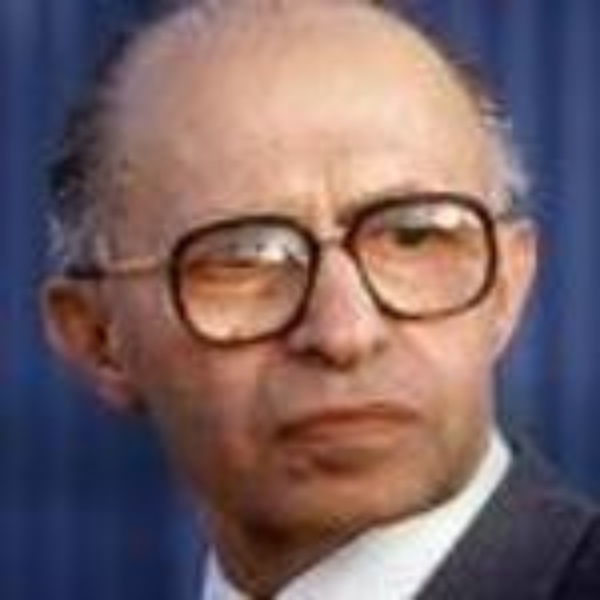 Менахемом Бегином прервались, президент США Дж.Картер пригласил обоих государственных деятелей в Кэмп - Дэвид в сентябре 1978 г. В течение 11 дней после интенсивных дискуссий было подписано Кэмп-Дэвидское соглашение, предусматривавшее полную эвакуацию израильских войск с Западного берега р. Иордан и установление на бывших оккупированных Израилем территориях самоуправления.
Менахемом Бегином прервались, президент США Дж.Картер пригласил обоих государственных деятелей в Кэмп - Дэвид в сентябре 1978 г. В течение 11 дней после интенсивных дискуссий было подписано Кэмп-Дэвидское соглашение, предусматривавшее полную эвакуацию израильских войск с Западного берега р. Иордан и установление на бывших оккупированных Израилем территориях самоуправления.
В марте 1979 г. эти положения, выработанные в Кэмп - Дэвиде между Бегином и Садатом при посредничестве Картера были оформлены в египетско-израильский мирный договор. Этот договор вызвал негодование и страх во многих арабских государствах, расколол палестинцев и организацию ООП на умеренно настроенных её членов и так называемых "реджектционистов", которые категорически отказывались признать египетско - израильское мирное соглашение. Воспользовавшись ситуацией, Каддафи закупил огромное количество советского оружия и приказал расширить сеть лагерей на территории Ливии по подготовке террористов. В декабре 1979 г. 300 мусульманских террористов захватили большинство святых в исламских гробницах в Мскке. Сам Садат был убит в 1981 г. арабскими экстремистами -"реджекетционистами".
хххххххххххххххххххххххххххххх
 |
 |
 |
|
|
|
На эмблеме Форума изображен “аттрактор Лоренца” − фигура, воплощающая вариантность движения потоков частиц в неравновесных системах.
Эмблема зарегистрирована как товарный знак © Научно-образовательный форум по международным отношениям, 2002 Москва, Газетный пер, д. 9, стр. 7, офис 16 Адрес для корреспонденции: 101000 Москва, Почтамт, а/я 81 Тел.: (095) 790-73-94, тел./факс: (095) 202-39-34 E-mail: info@obraforum.ru |
||
